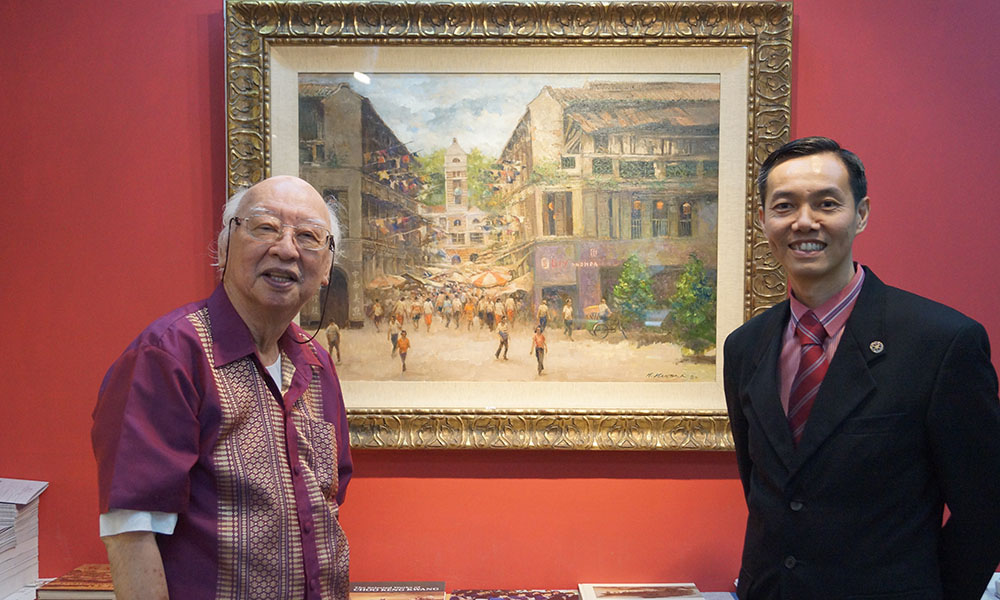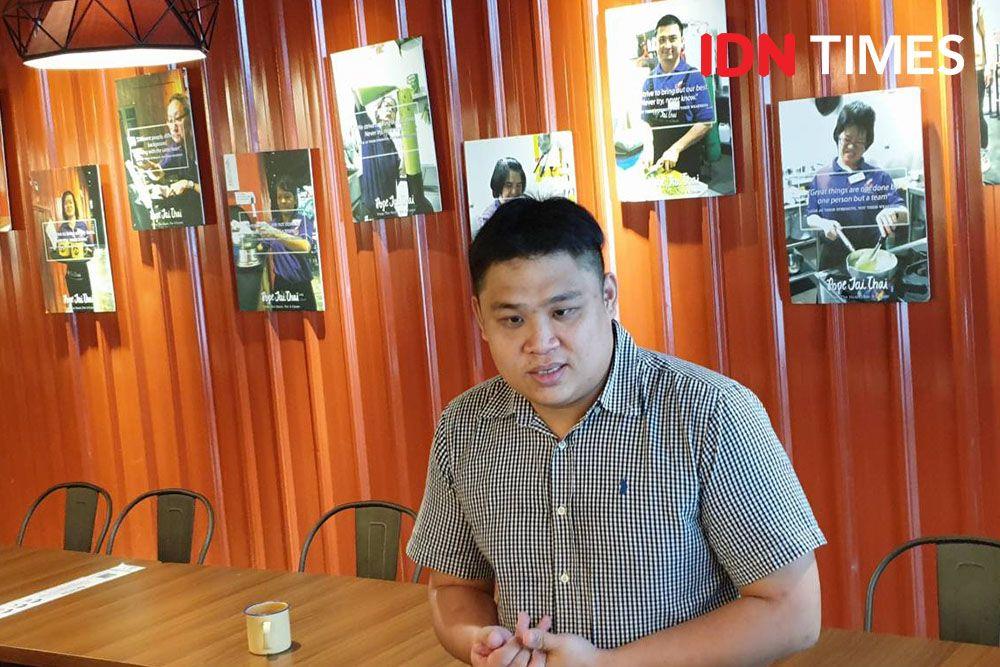By Jade Pearce
The Three Character Classic, or San Zi Jing (三字经), is the best known classic Chinese text for children. Written by Wang Yinglin (1223–1296 A.D.) during the Song Dynasty, it has been memorised by generations of Chinese, both young and old.
However, after the Cultural Revolution in China, the Three Character Classic was banned and eventually fell into disuse. In this series, we revive and review this great Chinese classic, drawing ancient lessons of wisdom for our modern-day lives.
A fool never learns from his mistakes. A smart man learns from his own mistakes. But a wise man learns from the mistakes of others.
Chinese Proverb
After many centuries of fragmentation and civil chaos, China was reunified by Emperor Wen under the Sui Dynasty (581-618 AD). At first, the Sui Dynasty seemed to represent the pinnacle of success — agricultural productivity flourished, ushering in prosperity not seen since the Han Dynasty. However, by the next generation, the dynasty had collapsed with Emperor Yang.
The Sui Dynasty was succeeded by the Tang Dynasty, which was founded by Emperor Gaozu of Tang. Unlike its short-lived predecessor, the Tang Dynasty enjoyed great longevity. Emperor Gaozu’s descendents would rule for over 300 years, passing the throne 20 times.
The Tang Dynasty represented one of the highest points of Chinese civilisation — it was a golden age of culture, technology, governance and economy. Many renowned Chinese emperors ruled during this time, including the great Emperor Taizong, the second ruler of the Tang Dynasty.
A Chinese philosopher once said, “A fool never learns from his mistakes. A smart man learns from his own mistakes. But a wise man learns from the mistakes of others.” After Emperor Taizong inherited the throne from his father Emperor Gaozu, he sought to ensure that the Tang Dynasty did not follow the same fate as the doomed Sui. He thus spent much time reflecting on the Sui emperors’ mistakes, endeavouring to inculcate those lessons into his rule.
‘You Must Point Out My Mistakes’
Emperor Taizong’s approach was not to point fingers or criticise what the Sui emperors had done poorly, and leave it at that. Instead, he closely examined their thoughts and actions, looking for flaws that he too might possess.
One day, Emperor Taizong was studying the autobiography of Emperor Yang of the Sui Dynasty. In his autobiography, Emperor Yang had written about his deep admiration of the ancient sage kings, Yao and Shun. He also condemned the two infamous tyrant kings, Jie of the Xia Dynasty and Zhou of the Shang Dynasty.

But Emperor Yang had been a deeply unpopular ruler, imposing compulsory labour duties, heavy taxation, and conscriptions to fuel several failed military campaigns. His actions resulted in civil revolts, and he was eventually assassinated.
Confused, Emperor Taizong consulted his advisors. “Clearly, Emperor Yang was able to distinguish good governance from bad governance. Why was he still such a tyrannical ruler?”
Prime Minister Wei Zheng, the emperor’s closest advisor, replied, “Even if a ruler is a saint to begin with, he must remain humble and receptive to criticism. Only then will wise men be willing to present their ideas to him, and brave men be willing to sacrifice their lives for him.
“While smart and talented, Emperor Yang was arrogant and unreceptive to criticism. He spoke like a sage king but behaved like a tyrant. Yet he could not see this for himself, because he refused all feedback and advice. That is the reason for his ruin.”
Emperor Taizong sighed and said, “Emperor Yang’s time was but two decades before us. I must learn from his lesson.”
Averting the Disaster of Qianyang Hall
Emperor Taizong took the lesson of Emperor Yang’s downfall very seriously, and throughout his reign he remained open and receptive to feedback and criticism. He acquired many excellent advisors, who often rescued him from making unwise decisions.
One such person was the imperial court official Zhang Xuansu. In the fourth year of his reign, Emperor Taizong decided to renovate Qianyang Hall in the imperial palace. But Zhang spoke up against the idea:
“I have witnessed how Emperor Yang of Sui built Qianyang Hall. The resources and manpower required were astronomical. Massive trees were cut down and transported from Nanchang, with each tree requiring 2,000 people to transport. The trees were so heavy that the iron carts bearing them broke every few miles. As a result, they had several hundred men carrying backup carts along the way, and they could travel no more than 30 miles a day.

“Historically, dynasties have collapsed after completing such extravagant projects. The Qin Dynasty collapsed after it finished building E-Fang Palace. The Chu Kingdom collapsed after building Zhanghua Palace. The Sui Dynasty collapsed after building Qianyang Hall.
Those that fail to learn from history, are doomed to repeat it.
Winston Churchill
“At present, the Tang Dynasty has not attained the same level of prosperity as the Sui Dynasty at its height. Moreover, our people have yet to recover from the civil upheaval. Under these circumstances, if we were to spend more resources renovating Qianyang Hall, Your Majesty would be making an even bigger mistake than Emperor Yang.”
Emperor Taizong replied, “If what you say is true, that would make me worse than Emperor Yang the tyrant!” He immediately aborted his plan to renovate Qianyang Hall.
Wisdom does not come from living in an ivory tower. It comes from being down to earth, listening to criticism and seeing one’s own flaws. It also comes from being able to correct one’s flaws and improve.
With his broad-minded attitude and the aid of his of advisors, Emperor Tang laid down a solid foundation for the Tang Dynasty. He also made sure to inculcate the same values in his sons, thereby establishing many generations of peaceful rule.
Drawing Lessons From History
In addition to ruling the country, Emperor Taizong devoted much time to studying Chinese history. He frequently drew from positive and negative examples of past Chinese rulers, reminding himself to avoid their shortcomings and mistakes.
One day, Emperor Taizong spoke to his court subjects about what he had read in the Classic of Poetry. “The Classic says that a greedy person will bring damage to many people. This is really true.”
He then relayed this story: “King Hui of the Qin State planned to go to war against the Shu State, but he was unfamiliar with the route to the Shu State. So he came up with a plan.
“King Hui had five stone oxen constructed and displayed in public. He then placed pieces of gold behind the stone oxen. Word soon travelled around the Shu State that there were five stone oxen that could produce gold!
“Intrigued, the King of Shu ordered five strong men to pull the stone oxen back to the Shu state, thereby revealing the best route to the Shu State. King Hui’s troops followed their trail, and conquered the Shu State. The King of Shu ultimately lost his country due to his greed of gold.
“Here’s another example: Tian Yan-nian, the agricultural minister of the Han Dynasty, took bribes that were worth 30 million silver coins, but he eventually died at his own hands. There are countless historical examples of people being destroyed by greed. While I caution myself against the greed of the King of Shu, you should also learn from the story of Minister Tian Yan-nian.”
As Winston Churchill once said, “Those that fail to learn from history, are doomed to repeat it.” History provides countless lessons for us to draw from, so that we don’t have to repeat the mistakes of our forefathers.
This is why — after covering the seventeen dynastic histories — the Three Character Classic admonishes its readers to study and reflect on its lessons:
“They contain examples of good and bad government, whence may be learnt the principles of prosperity and decay.
“You who read history must study the State Annals, whereby you will understand ancient and modern events, as though having seen them with your own eyes.
“Recite them with the mouth, and ponder over them in your hearts. Do this in the morning; do this in the evening.”
Stories from www.pureinsight.org
















